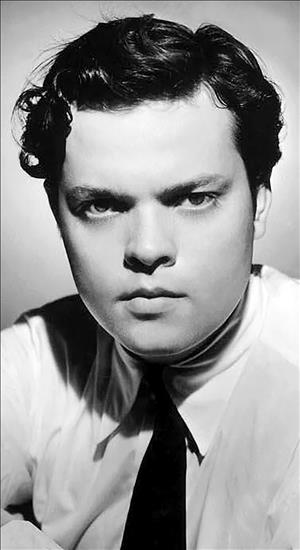On October 30, 1938, Orson Welles (1915-1985) and the Mercury Theatre on the Air broadcast a radio dramatization of H. G. Wells's War of the Worlds on the Columbia Broadcasting System (CBS) coast-to-coast network. The story of invading Martians is presented realistically, but disclaimers stating that the presentation is entirely fictional are aired four times during the hour-long show. Nevertheless, a nationwide panic ensues that reaches as far as the Pacific Northwest.
The radio play originated live at 8:00 p.m. in New York over station WABC and was fed to CBS affiliates across the nation. The show appeared to be a regular radio program with break-ins from an announcer telling of a meteor that crashed near Princeton, New Jersey, killing 1,500 persons. Following that, listeners were treated to "live reports" of Martians with death rays spreading throughout the countryside, killing every human in their path in what appeared to be the conquest of planet Earth.
But It's on the Radio!
Many people were so caught up in the believability of the drama that they didn't heed the disclaimers played during commercial breaks -- let alone noticing that a broadcast of Armageddon would even have commercial breaks. To them, this was a real news show and men from Mars were on the attack. Some listeners ran from their homes to alert mankind.
Since the "attack" began in New Jersey, much of the national panic occurred on the East Coast by those fearing that they were next. Telephone lines were jammed as people tried to verify reports, and this breakdown of communication turned many skeptics into believers. From there, the hysteria spread like wildfire.
In Brooklyn, one man refused to believe a policeman's denial by telling him, "What do you mean it's just a play? We can hear the firing all the way here and I want a gas mask. I'm a taxpayer." In Indianapolis, a church service was interrupted when a woman dashed in screaming, "New York is destroyed! Go home to die with your loved ones. I heard it on the radio." In San Francisco, one man pleaded with an unsympathetic newspaperman, "If you don't believe it, listen to it yourself!"
Concrete Evidence?
Even here in the Pacific Northwest, far from ground zero of the Martian invasion, CBS affiliate radio stations KIRO and KVI were flooded with phone calls. Switchboards at The Seattle Times and the Seattle Post-Intelligencer were likewise jammed, as persons throughout the state called the largest news outlets they could find for facts and updates on what they thought was the end of the world. Policemen at practically every stationhouse in the state calmed callers as best they could.
Probably the most terrified listeners were in the town of Concrete, located in Skagit County, 60 miles northeast of Seattle. By sheer coincidence, during the midpoint of the broadcast a power failure plunged almost the entire town of 1,000 into darkness. Some listeners fainted while others grabbed their families to head up into the mountains. Some of the men grabbed their guns, planning to blow away any bug-eyed monster or spaceship that got in their way.
War of the Words
By morning, public officials and news outlets had convinced most of the nation that the "catastrophe" was fictitious. Some who panicked the night before felt relief and some were embarrassed, but many were angry. More than a few who had been duped contacted their congresspersons, demanding that tighter controls be placed on radio broadcasts so that events like this would never happen again. Others saw this as censorship, and nothing much came of it.
CBS issued a statement expressing regret, but pointed out that "it was neither Columbia's nor the Mercury Theatre's intention to mislead any one, and when it became evident that a part of the audience had been disturbed by the performance five announcements were read over the network later in the evening to reassure those listeners."
Orson Welles was as surprised at the reaction to the broadcast as anyone. He told the press, "It was our thought that perhaps people might be bored or annoyed at hearing a tale so improbable." When questioned about other projects he had in the works, Welles replied, "I don't think we will choose anything like this again."

